


Nihil Obstat: Rev. David L, Zink
Hilarion Kistner, O.F.M.
Imprimi Potest: Fred Link, O.F.M.
Imprimatur: Most Rev. Carl K. Moeddel
Vicar General and Auxiliary Bishop of the Archdiocese of Cincinnati June
7, 2004
The nihil obstat and imprimatur are a declaration that a book or pamphlet is considered to be free from doctrinal or moral error. It is not implied that those who have granted the nihil obstat and imprimatur agree with the contents, opinions or statements expressed.
Scripture citations are taken from the New Revised Standard Version Bible , copyright 1989 by the Division of Christian Education of the National Council of Churches of Christ in the United States of America and used by permission. All Rights Reserved.
We are grateful for permission to quote material printed by the following publishers:
Excerpt from The Crucified God by Jurgen Moltmann, English translation copyright 1974 by SCM Press Ltd. Reprinted with permission of HarperCollins Publishers Inc.
Excerpts from Francis of Assisi: Early Documents , volumes 1, 2, and 3 edited by Regis J. Armstrong, J. A. Wayne Hellmann, and William J. Short copyright 1999. Reprinted with permission of The New City Press.
Excerpts from Clare of Assisi: Early Documents, trans. Regis J. Armstrong copyright 1993. Reprinted with permission of The New City Press.
Excerpts from New Seeds of Contemplation by Thomas Merton copyright 1961 by the Abbey of Gethsemani, Inc. Reprinted by permission of New Directions Publishing Corp.
Excerpts from Bernard of Clairvaux: Selected Works , translation and foreword by G.R. Evans, from the The Classics of Western Spirituality , copyright 1987 by Gillian R. Evans, Paulist Press Inc., New York / Mahwah, N.J. Used with permission of Paulist Press. www.paulistpress.com.
Excerpts from Angela of Foligno: Complete Works , translated with an introduction by Paul Lachance, O.F.M., Paulist Press, Inc., New York / Mahwah, N.J. Used with permission of Paulist Press. www.paulistpress.com.
Excerpts from Bonaventure: The Souls Journey into God, The Tree of Life, The Life of St. Francis , translation and introduction by Ewert Cousins; preface by Ignatius Brady, from The Classics of Western Spirituality , copyright 1978 by Paulist Press Inc., New York / Mahwah, N.J. Used with permission of Paulist Press. www.paulistpress.com.
Excerpts from A Testament of Hope: The Essential Writings of Martin Luther King Jr. , edited by James Washington have been reprinted by arrangement with the Estate of Martin Luther King Jr., care of Writers House as agent for the proprietor, New York. Copyright 1963 Martin Luther King, Jr., copyright renewed 1991 Coretta Scott King.
Cover illustration by Darina Gladiov
Cover and book design by Mark Sullivan
Library of Congress Cataloging-in-Publication Data
Delio, Ilia.
Franciscan prayer / by Ilia Delio.
p. cm.
Includes bibliographical references (p. 187) and index.
ISBN 0-86716-614-2 (alk. paper)
1. Prayer of St. Francis of Assisi. I. Title.
BV284.P73D45 2004
248.32dc22
2004015904
ISBN 0-86716-614-2
Copyright 2004, Ilia Delio
Published by St. Anthony Messenger Press
www.AmericanCatholic.org
Printed in the U.S.A.
For Sister Lisa Marie Drover, C.S.S.F
Whose friendship has taught me
about prayer and God
Contents
Acknowledgments
Every book reflects a human journey. It is written for oneself and others, that each person who reads the work may see something of their own life in ita reflection of their own journey. My Franciscan prayer class at the Washington Theological Union inspired this book. Gathering each week to discuss the principles and implications of prayer in the Franciscan tradition, I began to see how the deepening of prayer in the human heart reflects the face of God in the believer. It is with them in mind that I wrote this book. I would like to thank several people, however, who contributed to the fine-tuning of the work. I am grateful to Dr. Timothy Johnson for his careful reading of the text and helpful suggestions, Steven Kluge, O.F.M., for his comments and commendations, Cyprian Rosen, O.F.M., CAP., for reading the work and helpful discussion, Dr. Thelma Steiger whose insights on the imitation of Christ were influential in shaping the chapter on this subject and Cynthia Rogers for her gracious assistance. May all who drink from the fountain of Franciscan prayer never thirst for life. For Christ is the source of life and those who are in Christ are called to be life for the world.
O ne day I was sitting in the dining room at the Washington Theological Union where I teach engaging a group of new students in conversation. A young woman turned to me and asked, What are you teaching this semester? I enthusiastically replied, A course on Franciscan prayer. Franciscan prayer, she exclaimed, what is that? I know that the Carmelites have a tradition of prayerbut the Franciscans? Although I had already prepared the course for the semester, the young womans question took me by surprise. I was about to teach a course on a tradition of prayer that seemed highly dubious. I had done my homework for the course, but the question continued to linger with me throughout the semester and in subsequent years as I began to ponder more deeply the question, what is Franciscan prayer?
I must admit that my own spiritual journey began in a cloister of discalced Carmelite nuns where I spent four years learning the art of monastic prayer. When I eventually found my way into Franciscan life, it was my Carmelite foundation of prayer that provided the framework for my relationship with God. It was not long before I discovered that Franciscan life is different from Carmelite life, not only in the structure of the life itself but in the way the life forms ones spiritual attitudes of relationship to God, to others and to the world. Both forms of life add their beauty to the mystical Body of Christ, but Franciscan life is not monastic, and my Carmelite-shaped path of prayer needed to find a new voice and a new spirit in the cloister of the world.
So this is a book on Franciscan prayer written by a theologian who strives to define more clearly the path of Franciscan prayer and as one who seeks God in a complex world. It is my belief that an understanding of prayer in the Franciscan tradition, that is, the spirituality of prayer, can offer new vitality to Christian life today because it is a path of relationship with God that strives to live in the fullness of the Incarnation. It is a path that can enkindle the fire of Christian life by lifting us out of the doldrums of mediocrity and complacency and draw us into the mystery of Christ.
Franciscan prayer is dynamic because it is about participation in the mystical Body of Christ. Prayer in this tradition is decisively incarnational; it is centered on the person of Jesus Christ. According to Franciscan theology, Christ cannot be separated from the Trinity because Jesus Christ is the Word of God incarnate, the One through whom all things are made and in whom all things find their completion. To enter into the mystery of Christ through prayer, therefore, is to enter into the mystery of the Trinity, and to live in the Trinity is to live in relationships of love. Because Franciscan prayer is focused on the person of Christ, it is affective. It is prayer of the heart rather than head, and it seeks to center ones heart in God. The heart that is centered in God views the world as the place where God dwells.
Next page
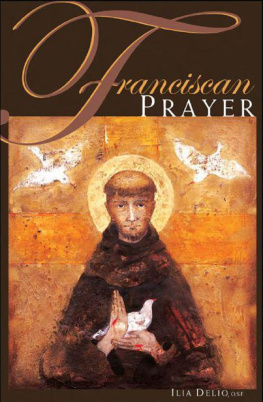
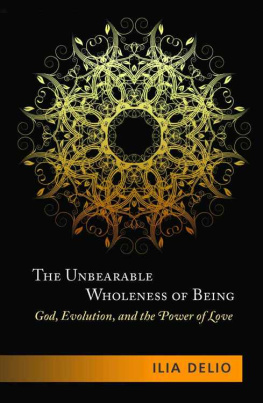
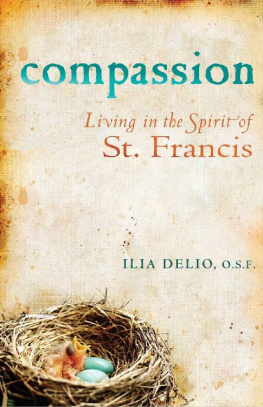
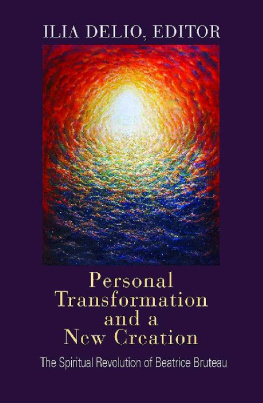

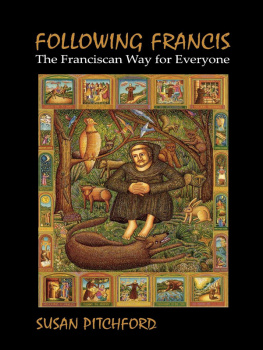
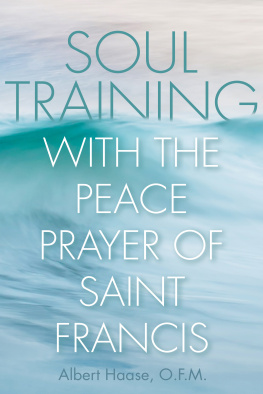
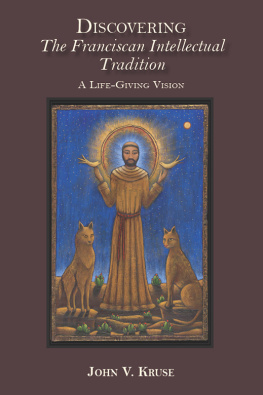
![Saint Bonaventure [Bonaventure - Saint Bonaventure Collection [6 Books]](/uploads/posts/book/134206/thumbs/saint-bonaventure-bonaventure-saint-bonaventure.jpg)


